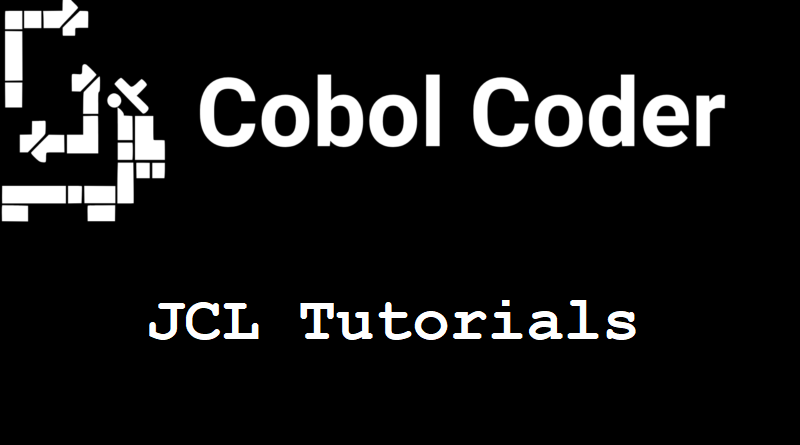OUTFIL in JCL: SORT to Divide a File
The OUTFIL in JCL is used with the SORT utility to create multiple output files from a single input file, based on specific criteria. This process is highly useful when we want to divide records in a file according to a certain condition, such as status, type, or any other identifying field. In this example, we’ll cover how to use OUTFIL in JCL SORT to split a file based on a particular position and value.
OUTFIL example in JCL
Suppose we have an input file, USER.FILE.ALL, with the following records:
00001JOHN SMITH STUDENT
00002JANE DOE TEACHER
00003ROBERT BROWN STUDENT
00004EMILY DAVIS STUDENT
00005MICHAEL WILSON TEACHER
00006SARAH JOHNSON STUDENT
00007DAVID LEE TEACHER
00008LAURA MARTIN STUDENT
00009DANIEL GARCIA TEACHER
00010JESSICA WHITE STUDENT Each record has a status at position 26, indicating whether the person is a “STUDENT” or “TEACHER”. We want to separate these records into two files based on this position.
JCL Code Example
Below is a JCL example using SORT to divide USER.FILE.ALL into two files: USER.FILE.STUDENTS for students and USER.FILE.TEACHERS for teachers.
//SPLITFILE JOB (ACCT),'Divide Files',CLASS=A,MSGCLASS=X
//STEP1 EXEC PGM=SORT
//SYSPRINT DD SYSOUT=*
//SORTIN DD DSN=USER.FILE.ALL,DISP=SHR
//STUDENTS DD DSN=USER.FILE.STUDENTS,DISP=(NEW,CATLG,DELETE),
// UNIT=SYSDA,SPACE=(CYL,(5,5),RLSE),
// DCB=(RECFM=FB,LRECL=80,BLKSIZE=0)
//TEACHERS DD DSN=USER.FILE.TEACHERS,DISP=(NEW,CATLG,DELETE),
// UNIT=SYSDA,SPACE=(CYL,(5,5),RLSE),
// DCB=(RECFM=FB,LRECL=80,BLKSIZE=0)
//SYSOUT DD SYSOUT=*
//SYSIN DD *
SORT FIELDS=COPY
OUTFIL FNAMES=STUDENTS,INCLUDE=(26,8,CH,EQ,C'STUDENT')
OUTFIL FNAMES=TEACHERS,INCLUDE=(26,8,CH,EQ,C'TEACHER')
/*Explanation:
- SORTIN: Specifies the input file,
USER.FILE.ALL. - STUDENTS and TEACHERS: Define the output files where the records meeting the conditions will be stored. These will be saved as
USER.FILE.STUDENTSandUSER.FILE.TEACHERS. - SYSIN:
SORT FIELDS=COPY: Specifies that records should be copied without sorting.OUTFIL FNAMES=STUDENTS,INCLUDE=(26,8,CH,EQ,C'STUDENT'): Filters records where the value in position 26,8 is “STUDENT”.OUTFIL FNAMES=TEACHERS,INCLUDE=(26,8,CH,EQ,C'TEACHER'): Filters records where the value in position 26,8 is “TEACHER”.
After running this JCL, USER.FILE.STUDENTS will contain records with “STUDENT” in the specified position, and USER.FILE.TEACHERS will contain records with “TEACHER” in that same position.
Resulting Output Files
USER.FILE.STUDENTS:
00001JOHN SMITH STUDENT
00003ROBERT BROWN STUDENT
00004EMILY DAVIS STUDENT
00006SARAH JOHNSON STUDENT
00008LAURA MARTIN STUDENT
00010JESSICA WHITE STUDENT USER.FILE.TEACHERS:
00002JANE DOE TEACHER
00005MICHAEL WILSON TEACHER
00007DAVID LEE TEACHER
00009DANIEL GARCIA TEACHER With OUTFIL, separating data in JCL based on conditions is streamlined and efficient, especially for tasks involving large datasets with diverse records. This example illustrates the flexibility of JCL’s SORT utility for organizing data as needed.
Compatible Elements with OUTFIL
OUTFIL in JCL can be combined with several elements and options for filtering and manipulating data. Here are some of the most common ones:
INCLUDE/OMIT:
INCLUDE and OMIT allow you to select or exclude records based on specific conditions.
OUTFIL INCLUDE=(start,length,format,operator,value)
OUTFIL OMIT=(start,length,format,operator,value)BUILD/OUTREC:
BUILD (or OUTREC) is used to reformat the output records by specifying the positions and formats of the fields.
OUTFIL BUILD=(newpos1:start1,length1,...)REMOVECC/NOREMOVECC:
REMOVECC or NOREMOVECC control whether carriage control characters should be removed or kept in the output file.
OUTFIL REMOVECC
OUTFIL NOREMOVECCExample Combining Multiple Elements
Below is an example of combining multiple elements in OUTFIL:
//STEP1 EXEC PGM=SORT
//SORTIN DD DSN=USER.FILE.DATA,DISP=SHR
//SORTOUT DD DUMMY
//OUT1 DD DSN=USER.FILE.STUDENTS,DISP=(NEW,CATLG,DELETE),
// SPACE=(CYL,(1,1),RLSE),
// DCB=(DSORG=PS,RECFM=FB,LRECL=35,BLKSIZE=350)
//OUT2 DD DSN=USER.FILE.TEACHERS,DISP=(NEW,CATLG,DELETE),
// SPACE=(CYL,(1,1),RLSE),
// DCB=(DSORG=PS,RECFM=FB,LRECL=35,BLKSIZE=350)
//SYSOUT DD SYSOUT=*
//SYSIN DD *
SORT FIELDS=COPY
OUTFIL FILES=01,INCLUDE=(26,7,CH,EQ,C'STUDENT'),BUILD=(1,35)
OUTFIL FILES=02,INCLUDE=(26,8,CH,EQ,C'TEACHER'),BUILD=(1,35)
/*In this example:
INCLUDEis used to filter specific records.BUILDis used to reformat the output records.FILES=01andFILES=02are used to specify multiple output files.
This demonstrates how you can effectively use OUTFIL to manage and process data in JCL by combining different elements for filtering, reformatting, and controlling the output format.

